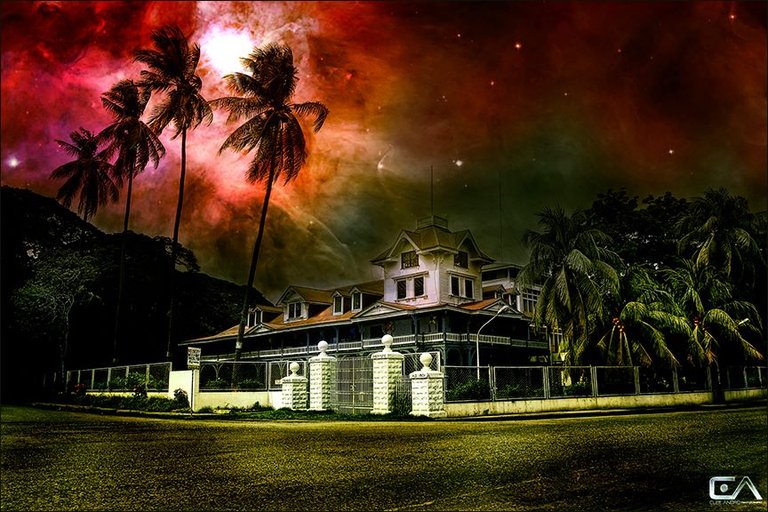I just want to share the university that made Dumaguete City a well known city.

Photo Credits to: http://www.fb.com/cleeandrophotographer
Here's a background history of Silliman.
To most Americans in the late 1800, Dumaguete was a name their tongue was still to master. It was unfamiliar to them. Even the Philippines, which at that time was still recovering from the onslaught of the Spanish-American War, was not on the immediate list for a Presbyterian mission. But it took the vision and commitment of a man to turn this around.
The late Dr. Arthur Carson, third Silliman president, wrote in his book how a man’s strong resolve to help shape Philippine education paved the way for the establishment of Silliman University. This man was Dr. Horace B. Silliman, a retired businessman of the town of Cohoes in New York State.
In 1899, Dr. Silliman appeared at the office of the Presbyterian Board of Foreign Missions with the conviction that the Filipino people would need a new kind of education. To support this, he contributed the initial sum of $10,000 toward the founding of an industrial school. Legend has it that the Board Secretary was surprised and explained that the Board had only begun to consider a mission in the Philippine islands. At that time, news was fresh on the naval victory of Admiral Dewey over the Spanish fleet in Manila Bay. The Board Secretary thought it would be too early for a school.
But the visitor persisted. Something had caught his imagination about these islands, and the people whom he had never seen and whom he would never meet.
Dr. Silliman had long been an active supporter of schools and colleges. Among such institutions was Hampton Institute of Virginia, and his proposal to the Presbyterian Board was for an industrial school in the Philippines on the Hampton model.
The mission in the Philippines started with Dr. David Sutherland Hibbard and wife, Laura, who were commissioned to head it. Three areas were considered: Cebu, Zamboanga and Iloilo. While in Cebu, someone suggested for him to make a side trip to Dumaguete. Sailing from Cebu on a Saturday night, he came out early on deck the next morning and saw ‘the unsurpassed drama of a Dumaguete morning from the sea.’
It was told that the friendly attitude of the people and the caliber of the local officials attracted him to Dumaguete, a ‘place of health and beauty.’
On August 28, 1901, Silliman Institute was established. As Dr. Hibbard described the modest beginning of Silliman half a century later:
‘There were fifteen boys that first morning. The equipment consisted of four desks about ten feet long, two tables and two chairs, a few McGuffey’s Readers, a few geographies, arithmetics and ninth-grade grammars. I was President; Mrs. Hibbard was the faculty.’
Enrollment in the university grew gradually to include students from Asian countries. The year 1912 marked the admission into the university of the first female student, Pura Blanco.
Silliman was granted university status in 1938.
Developments on campus were interrupted by two significant events in Philippine history: World War II and martial law. But Silliman braved these historic events and left dents on the pages of Philippine history.
At the height of the war, Silliman faculty members and students evacuated to four localities in Negros Oriental, and continued rendering professional services whenever there was an opportunity. This led to the establishment of the “jungle university” in the mountain of Malabo — the first community school in the Philippines.
In 1972, when martial law was declared, Silliman was one of the first two universities closed. It was also one of the last universities allowed to resume operations after the closure. Despite the threat to life and democracy, martial law did not, however, stop students from gathering and keeping their patriotism aflame. At the basement of the Silliman University Church, in a room named the Catacombs, the ‘secret’ campus rendezvous of students continued.
The rich contribution of Silliman to Philippine history has earned it the distinction of National Landmark from the National Historical Institute on June 19, 2002.
Growth of Silliman in the early period was greatly attributable to the support of the local community. Local families shared in the vision of Dr. Silliman and believed in the educational pursuits of Dr. and Mrs. Hibbard, and accordingly offered their properties through sale and donation to expand the campus. Later developments were characterized by more infrastructure development and initiation of student activities, ranging from journalism, public speaking, performing arts, and athletics.
Silliman continues to be nurtured under administrations headed by presidents of character and tested credentials. The incumbent President, its twelfth, is Dr. Ben S. Malayang III, an expert in environmental policy and governance. A Silliman alumnus, he holds two Master of Arts degrees from the Ohio University: one in International Affairs (Southeast Asia Studies; Major in Economics, Minor in Political Science and Philosophy); and a Doctor of Philosophy in Wildland Resource Science from the University of California at Berkeley.
Three American presidents and eight Filipino presidents have previously served as elected Silliman presidents: Dr. David Hibbard (1901-1930), Dr. Roy Brown (1932-1936), Dr. Arthur Carson (1939-1953); Dr. Leopoldo Ruiz (1953-1961); Dr. Cicero Calderon (1962-1971); Dr. Quintin Doromal (1973-1982); Justice Venacio Aldecoa (1983-1986); Dr. Pedro Flores (1987-1989); Dr. Angel Alcala (1991-1992); Dr. Mervyn Misajon (1994-1996); and Dr. Agustin Pulido (1996-2006).!
Read More about Silliman here: http://su.edu.ph/
Hi! I am a robot. I just upvoted you! I found similar content that readers might be interested in:
https://www.facebook.com/KKFIdorm
Congratulations @mheltone! You have completed some achievement on Steemit and have been rewarded with new badge(s) :
Click on any badge to view your own Board of Honor on SteemitBoard.
For more information about SteemitBoard, click here
If you no longer want to receive notifications, reply to this comment with the word
STOP